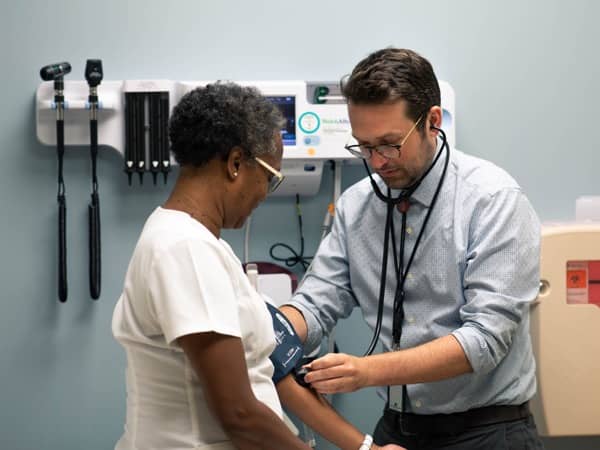The Tulane Internal Medicine Residency Program places a strong emphasis on outpatient medicine for all residents, whether they are categorical or primary care. All residents will complete more than 200 clinic sessions over a three-year residency, far exceeding the 150 required by the ACGME. They will also have over 25, three-hour "Ambulatory School" conferences devoted to topics in ambulatory medicine. For these reasons, the primary care track does not focus on providing additional clinic time or additional time to learn outpatient medical knowledge. Instead, it focuses on providing residents with additional skills in panel management, practice management and community engagement. In short, the Tulane Internal Medicine Primary Care Track is designed to create primary care leaders, developing the management, communication, and leadership skills requisite for running a patient-centered medical home upon their graduation.
Primary Care Track Basics
 As opposed to other residency programs where primary care residents are in parallel to the remainder of the residency program, the Tulane Internal Medicine Primary Care Track residents are integrally involved with all residents in the program. All interns in the primary care track do the same rotations as their non-primary care track colleagues. We believe this is important because it establishes a strong foundation in general internal medicine, and enables the primary care residents to appreciate the intricacies central to understanding successful transitions-of-care between the inpatient and outpatient environments.
As opposed to other residency programs where primary care residents are in parallel to the remainder of the residency program, the Tulane Internal Medicine Primary Care Track residents are integrally involved with all residents in the program. All interns in the primary care track do the same rotations as their non-primary care track colleagues. We believe this is important because it establishes a strong foundation in general internal medicine, and enables the primary care residents to appreciate the intricacies central to understanding successful transitions-of-care between the inpatient and outpatient environments.
Compared to categorical residents, primary care residents have one less elective month in their second and third year as well as one less CCU/ICU/Moondog rotation over the final two years. Those slots are filled with ambulatory-based rotations. Becoming a great primary care physician and leader involves much more than just seeing more patients in clinic during your residency time; the primary care track is designed to accomplish so much more.
Cultivating Leadership
The Tulane Internal Medicine Primary Care Track is defined by much more than clinical care. Primary care residents are firm leaders interacting with colleagues and impacting especially the outpatient-based care of their firms’ patients. Collaborative skills are honed not just by interacting with co-residents but also by working with the clinics’ non-physician staff (social workers, pharmacists, nurses, nurse practitioners, etc) while coordinating continuity of care. Working with the clinic leadership, residents acquire valuable skills by participating in policy and procedure discussions and changes. In doing so, residents gain valuable leadership and management experience, fully preparing them to lead their own primary care enterprise as a patient-centered medical home upon their graduation.
Research
Primary care track residents have the opportunity to work closely with the leaders in primary care in New Orleans to receive the mentorship required to advance an academic career in primary care. As the primary care track affords protected time to do so, residents have multiple opportunities to participate in outcomes-based research in primary care. By the completion of their residency, primary care track residents will have the opportunity to present such research at a local, regional or national meeting (all expenses sponsored by the program). In this way, the Tulane Internal Medicine Primary Care Track is unique: residents change the face of primary care by their scholarly pursuits, further preparing them to assume leadership roles upon graduation.
Teaching Primary Care
Valuable teaching experience is gained in the primary care track in a diversity of settings. Beyond the teaching that is expected of all Tulane Internal Medicine residents when working with medical students, primary care track residents serve as primary teachers in the Ambulatory School for their categorical colleagues. Primary care residents are taught essential skills in patient education and empowerment, and their involvement with the community-based clinics provides an opportunity to hone those skills.
